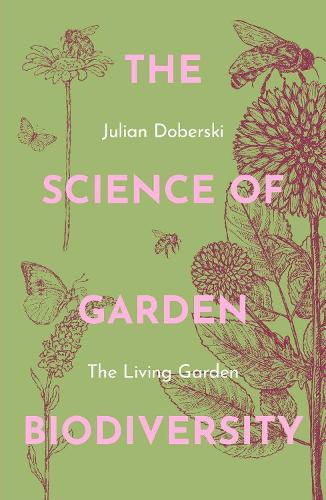
The Science of Garden Biodiversity: The Living Garden
(Paperback)
Publishing Details
The Science of Garden Biodiversity: The Living Garden
By (Author) Julian Doberski
Gemini Books Group Ltd
Pimpernel Press Ltd
24th September 2024
8th February 2024
United Kingdom
Classifications
General
Non Fiction
Ecological science, the Biosphere
635
Physical Properties
Paperback
144
Width 129mm, Height 198mm
Description
You step out of the back door into the garden. There may be a few birds flitting around, perhaps butterflies or bumblebees on the wing. But often the garden can seem very still. The plants are growing quietly to do so they sense and respond to the world around them. However, although the surface of the garden is typically calm and still, if you look beyond the superficial inactivity there is a web of wildlife to explore, to understand and then to encourage more biodiversity.
The Science of Garden Biodiversity: The Living Garden shows how data and the science can help to dispel myths, such as that wildlife gardens are great for wildlife (and other gardens arent), that a garden fit for wildlife must be wild and that you must grow native plants. It also provides an understanding of how diverse life can be in gardens and how gardens function ecologically. And along the way there are scientific signposts to better wildlife gardening. Julian Doberski explains the role of 'small things' - microrganisms and invertebrates - that are fundamental to garden diversity but are often overlooked when we are thinking about encouraging biodiversity.
Learning more about the ecology of a garden helps us understand and appreciate what makes a garden work and how this may lead to a more thoughtful and constructive approach to gardening and garden design, following the science to make gardens work for biodiversity.
Reviews
Praise forThe Science of Compost
"While this small book deals with lots of science, it is done in a very accessible form...Gardeners will find it a valuable resource that will help them perfect their own friable and fertile compost."
The Countryman
"A very serious, rigorous and thoroughly referenced deep dive into your compost heap...also acts as a reminder about why we might want to compost in the first place...this is primarily an analysis of the layers of the heap, and as such, an absolutely riveting read."
Alys Fowler,Gardens Illustrated
"A fascinating study of the biology of the lowly compost heap...reveals its mysteriously complex nature. This book wont tell you how to build a compost heap, but it will explain the science behind it to help you better understand how to build and maintain one."
The English Garden
Author Bio
Julian Doberski has degrees in Zoology (BSc Southampton), Forestry (MSc Oxford) and a PhD in biological control of insects using fungi (Cambridge). He has thirty years of teaching experience at Anglia Ruskin University in Cambridge (and its predecessor institutions) where he was a Principal Lecturer in Ecology. He has jointly published a resource pack for A level ecology students and a range of scientific research and science in education papers. His first book, The Science of Compost, was published by Pimpernel Press Ltd in 2022. He lives in Cambridgeshire.
